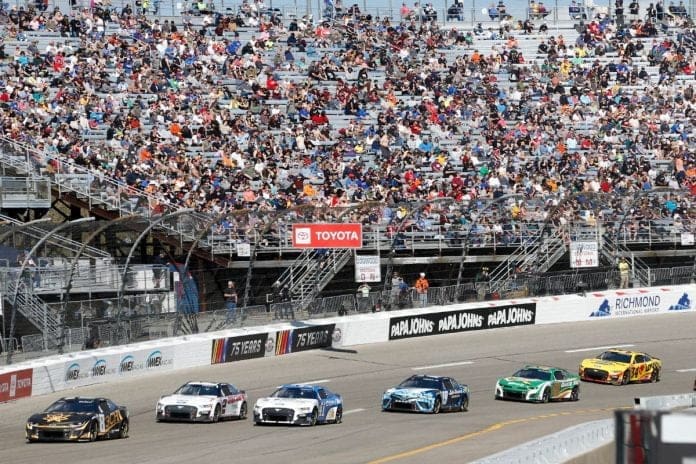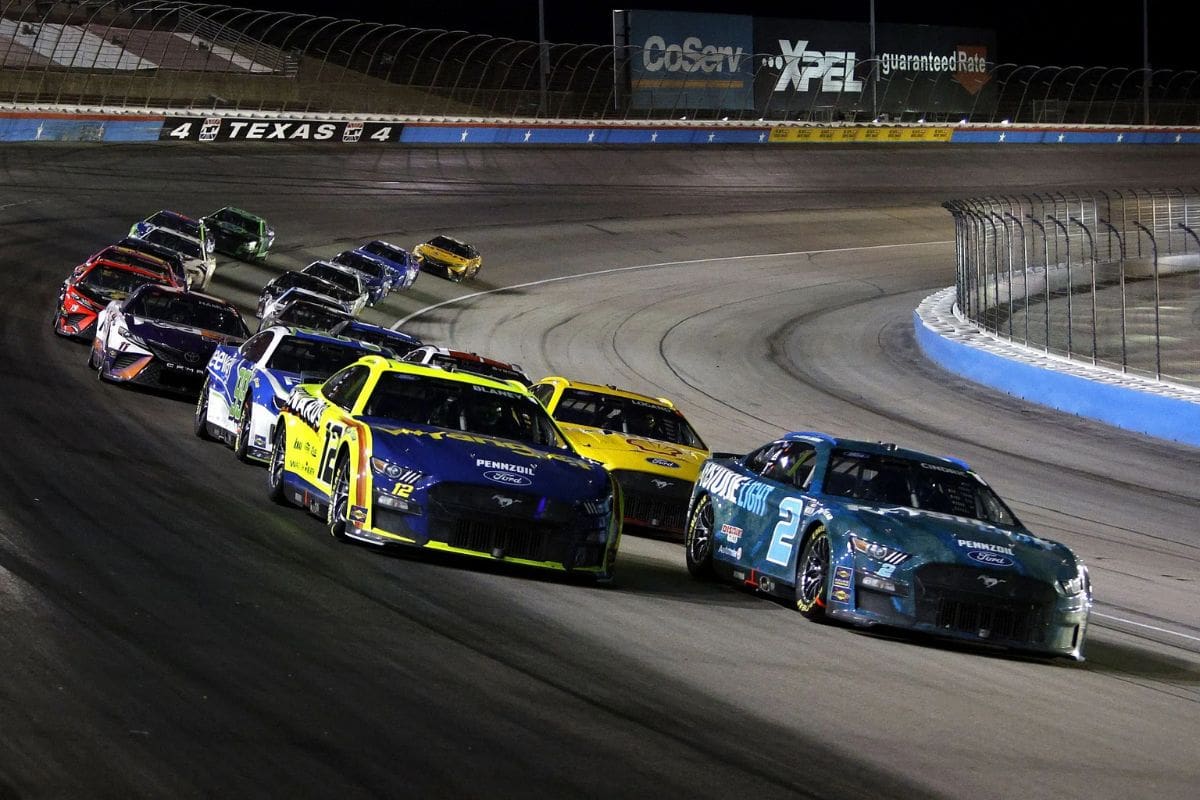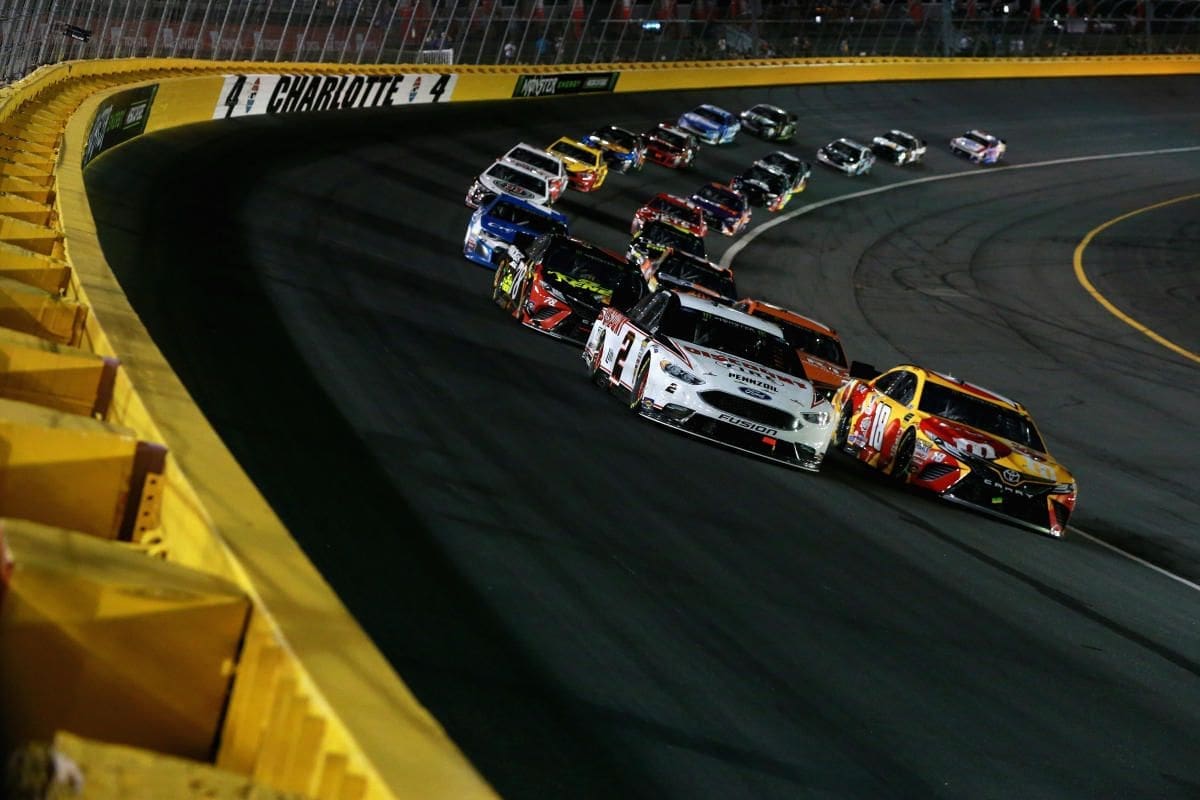Cup Teams Lost to NASCAR’s Oversight: The introduction of NASCAR’s charter system was designed to provide stability and predictability for teams; however, non-permanent charter teams have faced significant challenges. These teams struggle to attract sponsorships and resources, leading to a cycle of financial instability and frequent closures. The inability to secure consistent revenue streams severely hampers their capacity to compete for championships, fostering an environment of high turnover. As the debate over permanent charters continues without resolution, the broader implications for revenue distribution and governance within NASCAR become increasingly pressing.
Key Highlights
- Non-charter teams’ financial instability often leads to closures and high turnover rates.
- Uncertainty in race qualifications deters potential sponsors from investing in non-charter teams.
- Revenue disparity between charter and non-charter teams aggravates operational challenges for the latter.
- The charter system consolidates power among established teams, marginalizing non-charter teams.
- Negotiations for permanent charters remain at a stalemate, impacting financial predictability for teams.
The Impact of Charter System on Non-Charter Teams
The implementation of NASCAR’s charter system has greatly disadvantaged non-charter teams, leading to widespread closures and financial struggles as they navigate an increasingly competitive and exclusive racing environment. The charter system, introduced in 2016, was intended to provide stability and value to team ownership by guaranteeing entry into races for charter holders. However, this has accidentally marginalized non-charter teams, making it notably harder for them to sustain operations and attract investments.
However, while teams compete for a larger share of the revenue, especially following the new $7.7 billion media rights deal, NASCAR appears to be overlooking a growing issue that has troubled several racing organizations in the past.
Non-charter teams now face a challenging uphill battle. Without the security of guaranteed race entries, they must qualify for each race, an inherently uncertain process that imposes significant financial risks. This uncertainty deters potential sponsors, who prefer the visibility and reliability offered by chartered teams. Consequently, non-charter teams struggle to secure the necessary funding, leading to a vicious cycle of underperformance and financial strain.
Moreover, the economic landscape of NASCAR has shifted, with the value of charters increasing. This escalation has priced many smaller teams out of the market, forcing them to either shut down or merge with larger entities. The barrier to entry has never been higher, effectively consolidating power and resources among a few established teams while stifling new or smaller competitors.
Non-Charter Teams’ Struggles and Lack of Championship Contention
A charter not only secures a team’s position on the lineup every weekend but also provides them with a portion of the revenue stream, in addition to the event prize pool. Consequently, non-charter teams must rely solely on prize money and sponsorships for survival.
Wood Brothers Racing, fielded a full-time driver in 2016 as a non-charter team. That driver happened to be the current reigning champion, Ryan Blaney, who was in his debut season with the team at the time. Despite delivering strong performances, they were far from being considered a championship-contending team.
Gaunt Brothers Racing also had to halt its racing activities due to the inability to acquire a charter. Daniel Suarez, who drove for the team in the No. 96 Toyota car in 2020, experienced a comparable situation. Without race victories or a playoff berth, the investment didn’t yield sufficient returns. Suarez concluded the season in 31st position before joining Trackhouse Racing.
The revenue disparity is stark. Charter teams benefit from a more predictable income stream, including a guaranteed share of the purse and television revenue, allowing for strategic long-term planning and investment in technology, personnel, and infrastructure. Non-charter teams, however, are often forced to operate on a shoestring budget, relying heavily on race-to-race performance and sporadic sponsorship deals. This financial uncertainty severely limits their ability to attract top-tier talent or invest in cutting-edge technology, critical elements for championship competition.
Teams’ Utilization of Non-Charter Status
Recognizing the inherent challenges of non-charter status, some teams like Rick Ware Racing and Kaulig Racing have strategically utilized this flexibility to experiment with driver line-ups and adapt swiftly to changing circumstances. This approach allows these teams to assess talent and fit without the long-term commitments that chartered teams often face. By rotating drivers, non-charter teams can quickly identify high-potential talent and make real-time adjustments, which is particularly valuable in a dynamic and competitive sport like NASCAR.
Rick Ware Racing, for instance, has capitalized on the ability to field different drivers across different races, thereby gaining insights into driver performance and team synergy under varying conditions. This adaptability can be a double-edged sword, however, as frequent changes can disrupt team cohesion and hinder consistent performance. Nonetheless, the flexibility afforded by non-charter status provides a unique opportunity for innovation and rapid response to unforeseen challenges, such as driver injuries or sudden sponsor changes.
Kaulig Racing has also leveraged their non-charter status to field part-time entries, allowing them to compete in select races that align with their strategic goals and resource availability. This selective participation can optimize resource allocation and focus efforts on races where they have the highest potential for success. However, this approach requires meticulous planning and robust financial management to avoid the pitfalls of overextension and operational downsizing.
Push for Permanent Charters
Amid mounting financial challenges, NASCAR teams are increasingly vocal in their push for permanent charters to secure consistent revenue streams and guarantee long-term stability. The current system, which operates under a mix of permanent and non-permanent charters, has left many teams in a risky position, lacking the financial predictability necessary for sustainable operations. This push is highlighted by prominent figures such as Michael Jordan and Jeff Gordon, who emphasize the urgent need for an updated framework.
Permanent charters would provide teams with a reliable income source, derived from race winnings, sponsorship deals, and a share of television revenue. This financial consistency would enable teams to plan long-term investments, improve performance, and attract high-caliber talent. Furthermore, it would mitigate the financial risks associated with the volatile nature of motorsports, where non-permanent charters can leave teams scrambling for funding each season.
“If you had permanent charters, then you could create a revenue stream, either with new investors or different type of sponsorship that would subsidize that type of variance between ownership and the league. If you don’t correct that, this sport is going to die. Not because of competition aspect, but because economically, it doesn’t make sense for any business people.” – (Jordan)
Michael Jordan, co-owner of 23XI Racing, has publicly demanded for this shift, emphasizing that the current financial model is unsustainable for new and existing teams. Jeff Gordon, Vice Chairman of Hendrick Motorsports, echoes this sentiment, stressing that permanent charters are crucial for the sport’s economic health.
“I don’t think Hendrick Motorsports have made a profit in 10 years. And then you say, why do you do it? Well, it’s because Rick Hendrick loves the sport, he loves the cars and it’s good branding.” – (gordon)
The shift to permanent charters is not without its complexities. It would require substantial changes to NASCAR’s current business model and necessitate negotiations with stakeholders to align on revenue distribution. However, the potential benefits—stability, financial security, and growth—make a compelling case for the change.
Stalemate in Charter Negotiations
As the push for permanent charters gains momentum, the ongoing stalemate in negotiations between NASCAR and its teams highlights the critical need to address the financial and operational uncertainties plaguing the sport. This deadlock is not merely a matter of administrative delay; it bears significant implications for the future of NASCAR, affecting everything from team viability to competitive balance and the general financial health.
At the heart of the deadlock is the end of the current charter agreement, which has bound teams to a structure that, although offering some stability, lacks lasting assurance. Teams are demanding for permanent charters to guarantee a predictable revenue stream and safeguard their investments. The current system, however, leaves them vulnerable to the whims of annual negotiations and fluctuating terms, which can destabilize financial planning and operational logistics.
On the flip side, NASCAR is hesitant to grant permanent charters without incorporating mechanisms that maintain league control and flexibility. They argue that too rigid a system could stifle innovation and adaptability, crucial components in a rapidly evolving sports landscape. Yet, this caution must be balanced against the existential threats facing teams, particularly smaller operations grappling with inconsistent funding and sponsorship volatility.
News in Brief: Cup Teams Lost to NASCAR’s Oversight
The implementation of NASCAR’s charter system has worsened the financial and operational challenges faced by non-permanent charter teams. This has resulted in significant barriers to sponsorship acquisition and competitive viability.
The high turnover and limited championship competition highlight the critical need for stable revenue sources and equitable governance.
The ongoing stalemate in charter negotiations emphasizes the importance of addressing these systemic issues to guarantee the long-term stability and health of the sport. This involves balancing league control with team sustainability.
ALSO READ: Cup Series Teams Reject NASCAR’s Spending Limit: Revolt Sparks Controversy!




